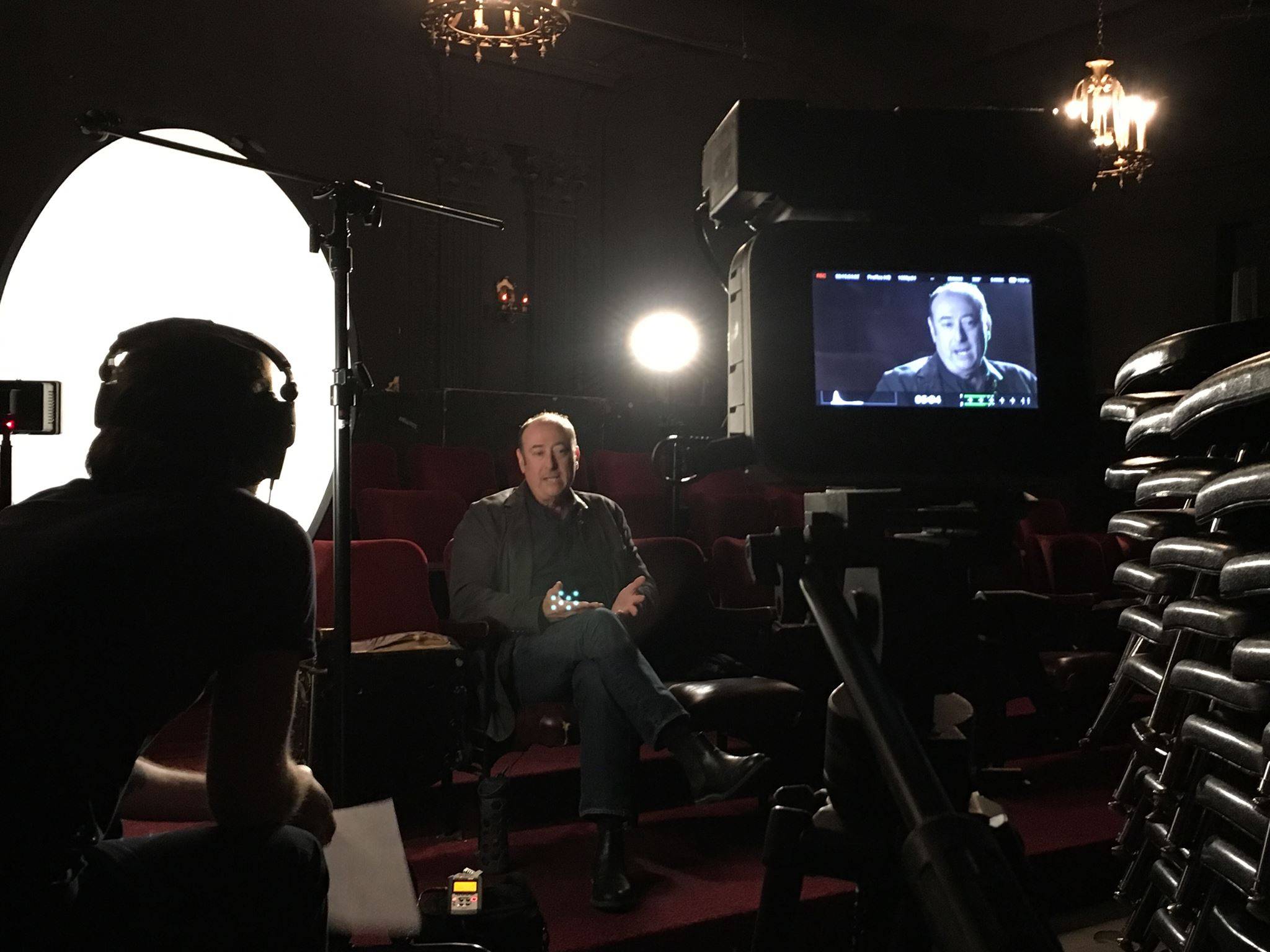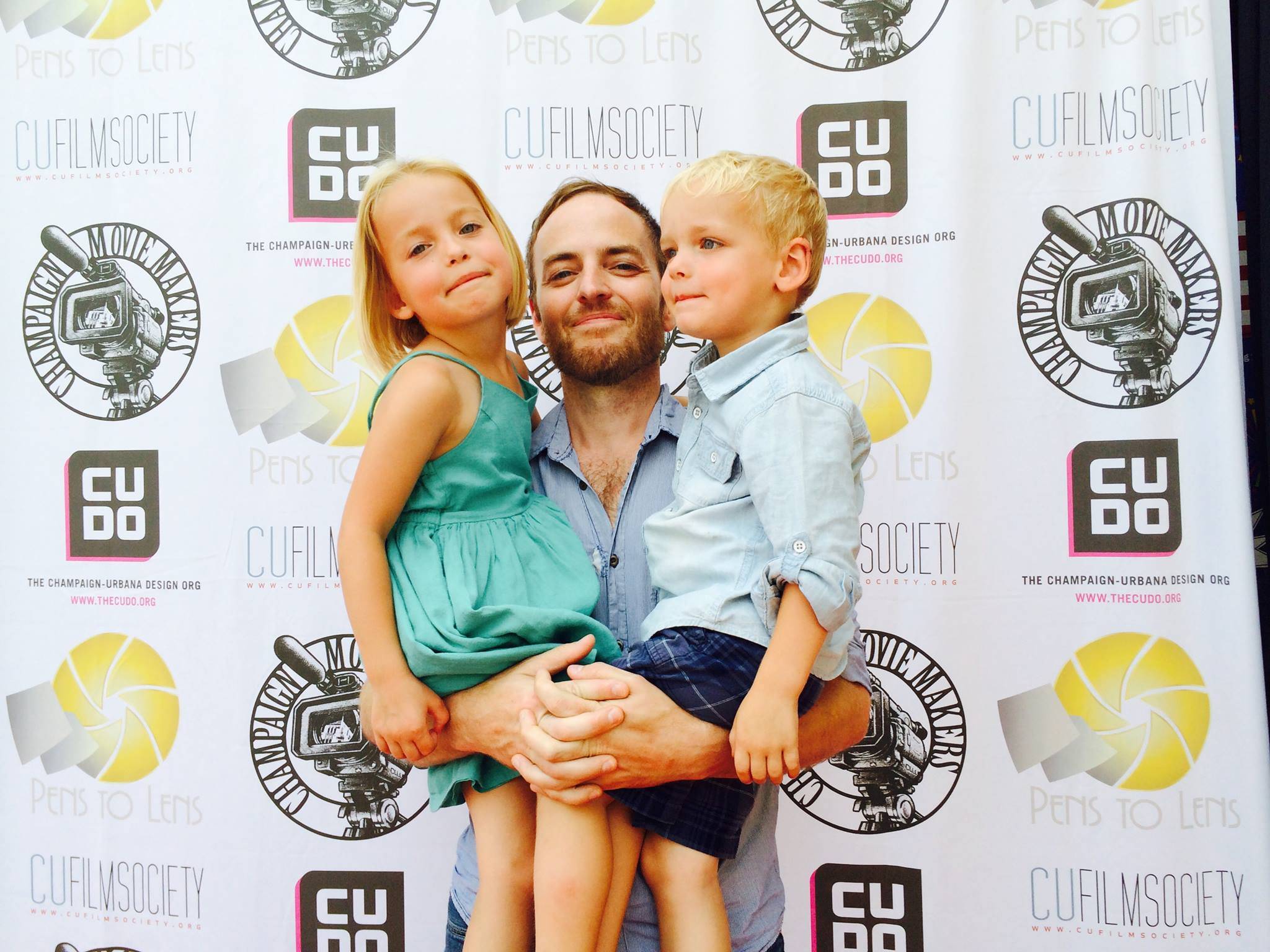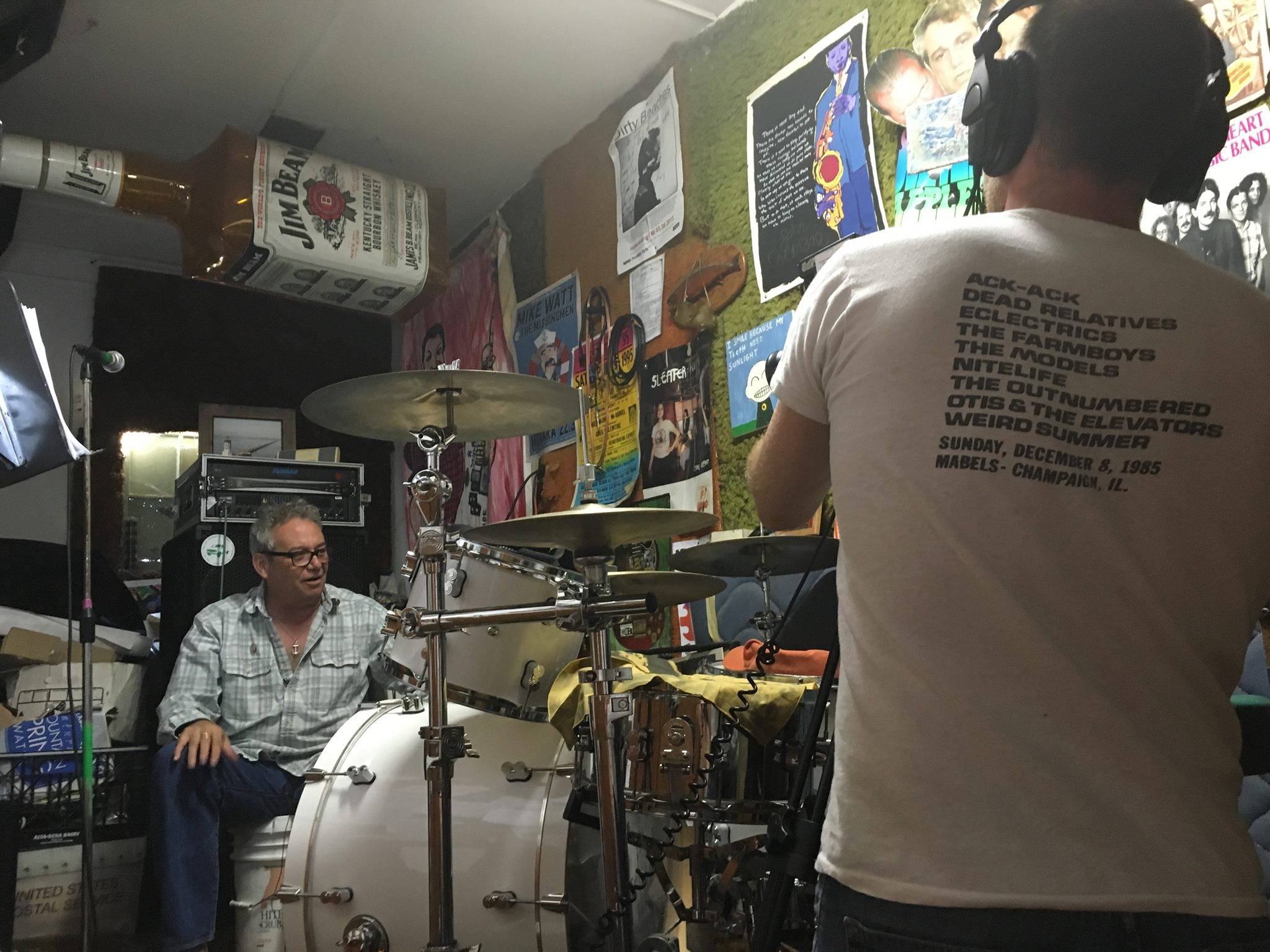Musicians are just people that make music.
That was one of my main takeaways from my conversation with John Isberg, a Champaign musician and filmmaker. Musicians are just people that make music, and we should all come together to listen and to jam. It really isn’t too complicated.
Isberg’s current project is called Where It Begins: CU Music Documentary 1977-2000, and it’s about “The rise of the American independent music scene during that time, using the music community of Champaign to show the larger national music scene growth.”
For this idea, John Isberg has embarked on a journey. He’s trekked all over the country to interview musicians, producers, managers, and people who take part in every aspect of music. He’s seen the insides of famous recording studios and venues, met the people in charge of them, and listened to their stories. He’s done it all to show viewers a piece of his history, and of ours, as C-U music makers and fans.
But “famous” is relative, and often irrelevant. Throughout his travels, Isberg has always kept that sentiment close – music should bring people together. There should be as little hangups and pretensions as possible, and sometimes simplicity is best.
“If we see each other as one community together, we’ll be that much better off.”
Isberg mentioned this theme almost immediately. He’s got a quick vocal clip and an ear-to-ear smile, and it wasn’t five minutes gone before I realized that he was a fan, a FAN. Period. There’s little that he loves more in life than music and the stories behind it. That he wants to tell this story makes perfect sense.
Although life has taken him many places, Isberg has always found his way back to Champaign. Like his subjects, he is a veteran musician, and has played music in one form or another for over two decades. His own band is Tigerbeat, whose varying synths and percussive elements blend with classic guitar melodies for a sort of dreamy indie sound. He’s got a family here, and a teaching job. So at some point, he decided to funnel together his passion for music and for this town into a film. His passion right now is to show this community its own importance in national music history.
Vertebrats on a news program, circa 1982
Isberg’s film explores the culture at the time by capturing what’s going on at the venues, or the record stores, or in people’s basements. It stresses the importance of college radio and documents the changes that take place during the rise of the Internet. Isberg talks about (and to) C-U’s seminal and heavy-hitting bands of those eras: Screams, Vertebrats, Elvis Brothers, Poster Children, Hum, Braid, American Football, and many more. Isberg also speaks with people involved with C-U music at the time that appeal on a more national level. There are interviews with producer Steve Albini, Kim Deal of Pixies, Mike Watt of Minutemen, Metro owner Joe Shanahan, and so, so many more. Isberg isn’t done filming yet, either, so the list grows and grows.

Isberg interviewing Joe Shanahan
Since Isberg has become a pro at interviewing musicians, I asked him for pointers. He referenced his interview with Kim Deal.
“I think the thing I try to do is, I don’t really mention their band. I’d rather just let them talk about it. There’s this weird distance you make when you do that …. like ‘Tell me about the Pixies,’ versus like, ‘Tell me what it was like to play your first show.’ Because I think that’s more relatable. You have to remember that they’re normal people. You have to be able to divorce the celebrity from what they do.”
Don’t ask them about their job, ask them about their experiences. That makes them human again. That brings them into the community.
With his keen focus on music trends coming and going, I asked him what makes for a good music scene. Isberg mused on the concept of waves.
“It goes back to the idea of rising and falling waves of bands. Mark Rubel (founder of Pogo Studio) said that when kids started to get pissed about the music scene around town, that’s when he’d get excited, because it meant the next wave was going to come.”
By nature, humans are reactionary. When people get fed up with shit they don’t like, they do something about it. People make waves.
A lot of the subject matter for Isberg’s film wouldn’t exist, were it not for a kid named Josh Gottheil. Most of the people reading this piece know who Josh was. Smile Politely is largely read by C-U natives, and Josh impacted this community in a way that left ripples reverberating out and touching everyone, for decades, indefinitely. In the 1980’s, Gottheil was a diehard music fan and band promoter who started his own production company as a teenager, bringing in huge acts like the aforementioned Pixies. He was diagnosed with lymphoma as he was just starting college, and lost his battle with the disease at age 19. His determination to bring good music to his hometown enlivened the scene and created waves. After his passing, musicians such as the Flaming Lips and the Pixies came to play Champaign-Urbana in benefit for Josh’s Fund, which helps support the education of oncology nurses.
Where It Begins shows how ground-breaking Gottheil was and is to C-U music, and how part of it truly started with him.
The story of Josh Gottheil is also important because of Josh’s age. He did remarkable things as a teenager that many people couldn’t imagine doing at that age, and he was compelled to do them because of his passion for music, and for bringing good music to good people. This is a concept as old as music. People young, old, and everywhere in between can rock out to good tunes.
The eternal nature of fandom is also a key theme of Where It Begins. Isberg’s subject matter and timeline should imply his age, but they don’t. At some point while talking to him, I realized I was assuming that he had just been an insanely precocious kid. I got this impression because Isberg is exuberant, in the strictest sense, and people limit those qualities to the youngest of us. It’s a shame, and Isberg says he addresses this in his film – the concept of ageism in the music industry. Making a documentary gives new perspective on the passage of time. In spite of this, Isberg’s documentary really doesn’t seem to be about “the good old days.” He embraces the ebb and flow of it all, and welcomes the new generation of musicians and music fans.

Isberg with his children, Eve and Finn, at Pens to Lens 2015
One of the most important parts of Where It Begins is its reference to Mabel’s, a bar that existed on Green Street in the spot that now houses Brother’s. Isberg described Mabel’s as “The cultural hub of the 80’s for the music scene in the area.” The place tended towards hosting rock, alternative, and punk acts. A fair amount of renowned and critically acclaimed artists within that wheelhouse played this venue: Pixies, Wilco, Husker Du, and the Smashing Pumpkins, to name just a few. The place was also frequented by local heroes such as Braid and Hum. The people that came together under that roof got to see the evolution of something amazing, and it’s clear that it was some kind of magical.
Martyrs at Mabel’s, back in the day
Saturday, August 13th, Mabel’s will ride again for one more evening. Isberg and some friends are taking over Brother’s for a show. Mabel’s Night will feature six bands, coming together to reminisce and rock the fuck out for a night in the spirit of things both old and new. The fun starts at 6 p.m. and tickets are $17 in advance/$20 at the door. Isberg will also be filming at the show for Where It Begins. And that means, my dear Chambana friend, that it is now YOUR chance to become a part of our music history.
————————-
SP: What do you want people to take away from the doc?
Isberg: Just to value each other, and value your community, and have some perspective on where this comes from. The best thing, ever, is to see friendships comes out of this.








